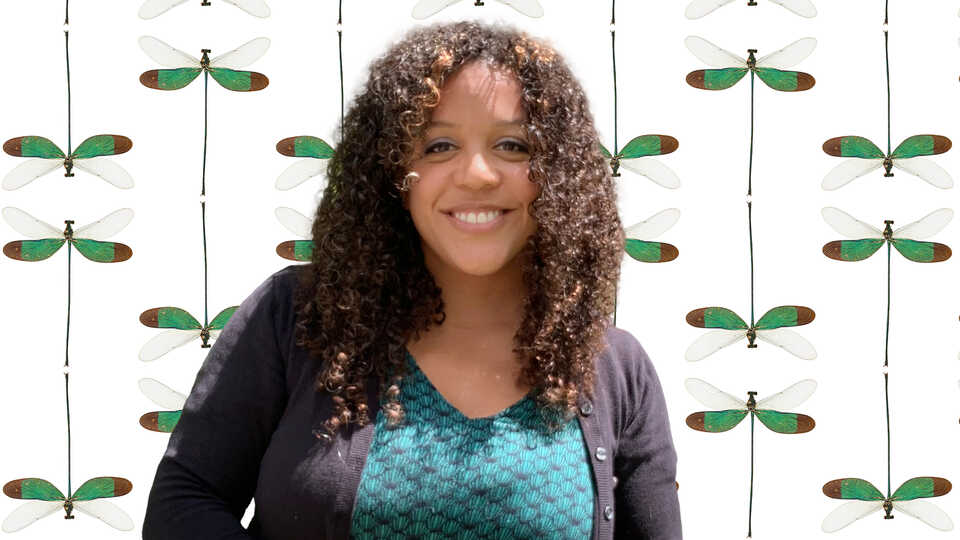I am an evolutionary biologist who uses morphological and genomic data to unravel the evolutionary history of dragonflies and damselflies (Odonata), termites, and cockroaches (Blattodea). As a scientist, I work as a curator of an amazing collection of non-Holometabolous insects, and I’m surrounded by supportive colleagues! Despite this, my career sometimes feels a little isolating, as I rarely have the opportunity to interact with people in science who share my lived experiences.
I am a Black, pan/bisexual, cis woman raising an LGBTQAI2S family. I grew up in Canada as one of a set of twins, where I spent much of my childhood hiking through the woods in Ontario and swimming in Lake Muskoka. I feel that my identity as a scientist has been greatly influenced by my lived experience as a Black woman, and as a queer person. As a field biologist, these identities shape many aspects of my research program regarding safety in the field.
I have always been inspired by the folks who came before me, amazing Black scientists like Margaret Collins and Henry Turner, but I know far less about the history of Black queer scientists, and that's in part because barriers were put in place to actively exclude such people from participating in STEM—and historians have not often recorded the stories of those who made it through the arduous journey to become researchers. As such, I feel passionately about increasing the diversity in my field, and I work to make space for everyone to be able to participate in STEM, from basic research to decision-making in our field. With colleagues, I co-founded a collective, https://www.entopoc.org/https://www.entopoc.org/, which works to diversify the field of entomology. As part of my service to my scientific societies, I have tried to encourage decisions that would broaden participation and create equity among the broad international entomological community. Ultimately, I hope that my career will be known for helping us better understand dragonfly systematics, but also for making the STEM field a place everyone can thrive.

